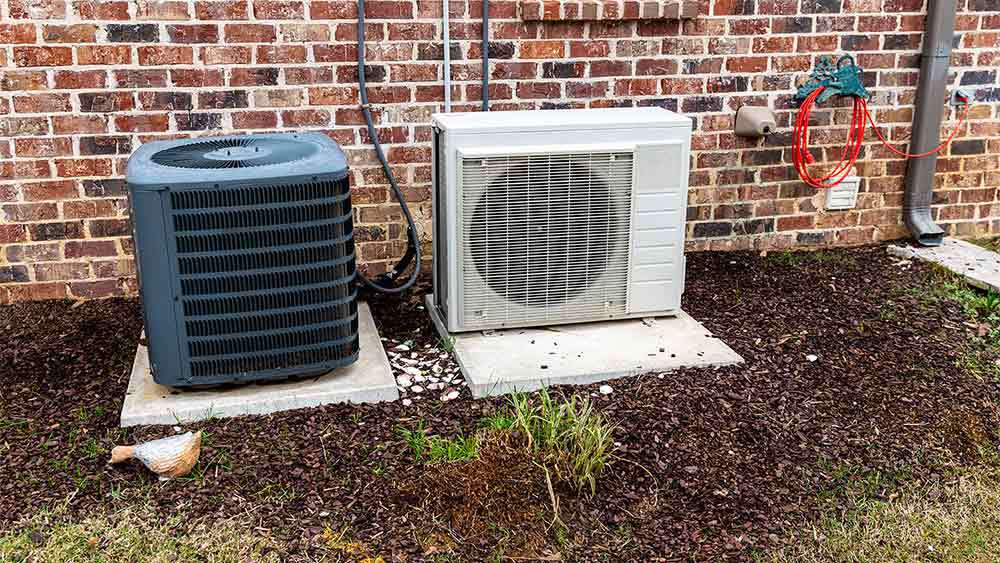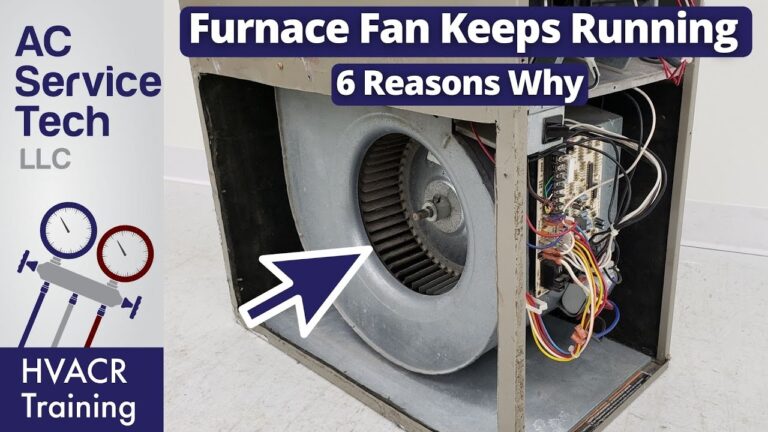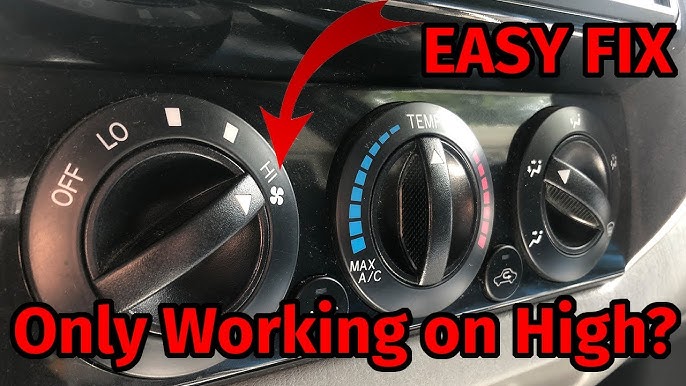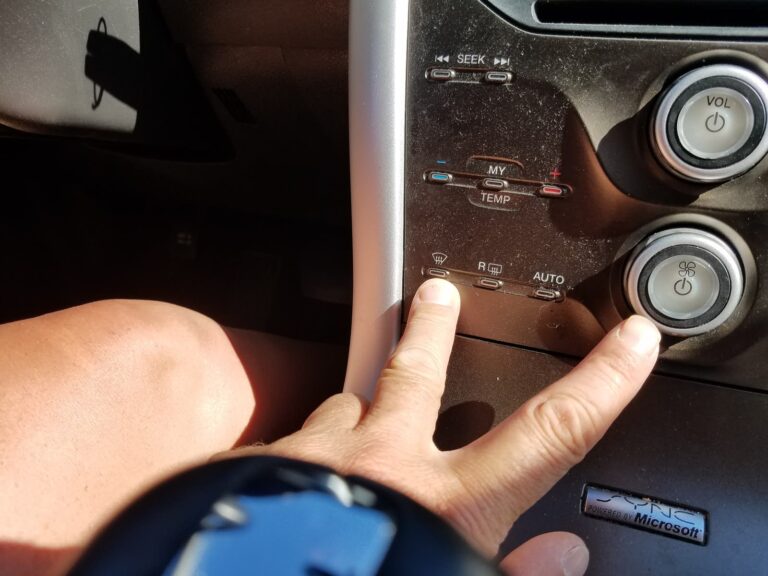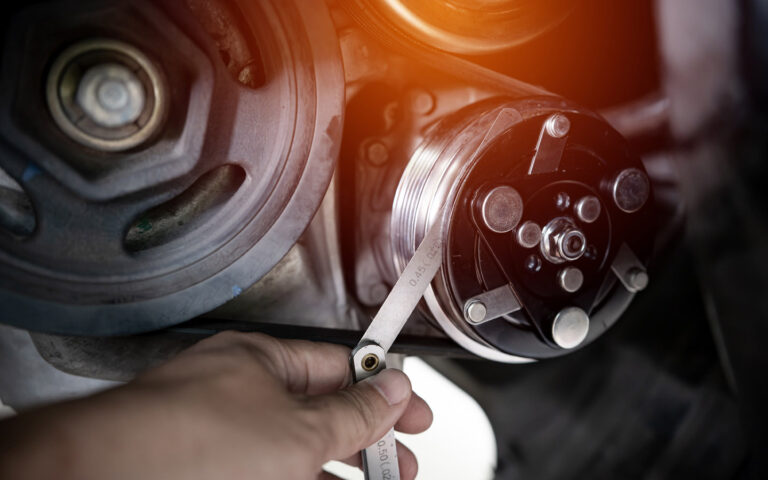Why is My Car Air Conditioner Hissing? Find Out the Cause!
If your car air conditioner is hissing, it is likely due to the refrigerant going through the expansion valve. This is a normal functioning of the AC system, as the expansion valve allows the refrigerant to expand and become cold, which then flows through the evaporator.
Understanding The Hissing Sound In Your Car Air Conditioner
If you’re wondering why your car air conditioner is making a hissing sound, it could be due to a refrigerant leak. This common issue can cause the refrigerant to depressurize, resulting in an audible hissing noise.
If you’ve noticed a hissing sound coming from your car air conditioner, it’s important to understand what might be causing it. This noise could indicate a potential issue with your AC system that needs attention. In this section, we will delve into the causes of the hissing sound and explain how the AC system works, with a focus on the role of the expansion valve.
What Causes The Hissing Sound In Car Air Conditioners?
The hissing sound in your car air conditioner can be attributed to several factors. Here are the most common causes:
- Refrigerant leak: A refrigerant leak is a common cause of hissing sounds in car air conditioners. The refrigerant, under constant pressure, tends to make an audible hissing noise when it escapes.
- Faulty compressor: A malfunctioning compressor can also lead to a hissing sound. The compressor is responsible for pressurizing and circulating the refrigerant throughout the AC system. If it is not functioning properly, it can produce a hissing noise.
- Expansion valve issues: The expansion valve plays a crucial role in the AC system. It allows the refrigerant to expand and become cold before flowing through the evaporator. Any problems with the expansion valve, such as clogs or malfunctions, can result in a hissing sound.
How Does The Ac System Work?
To better understand the hissing sound in your car air conditioner, it is essential to grasp the basics of how the AC system operates. Here’s a breakdown:
- The AC system uses a refrigerant, typically a gas or liquid, to cool and dehumidify the air inside the vehicle.
- The compressor pressurizes the refrigerant, raising its temperature.
- The pressurized refrigerant then flows to the condenser, where it releases heat and becomes a liquid.
- Next, the expansion valve regulates the flow of refrigerant into the evaporator. This valve allows the refrigerant to expand and become cold, leading to the cooling effect.
- The cold refrigerant passes through the evaporator, where it absorbs heat from the surrounding air, cooling it down.
- Finally, the cooled air is delivered into the cabin through the air vents, while the refrigerant returns to the compressor to restart the cycle.
The Role Of The Expansion Valve In The Ac System
The expansion valve is a critical component in the AC system, instrumental in achieving the desired cooling effect. Here’s what it does:
- Controls refrigerant flow: The expansion valve regulates the flow of refrigerant from the condenser to the evaporator. By controlling the flow rate, it ensures that the refrigerant expands adequately, allowing for efficient cooling.
- Lowers refrigerant temperature: As the refrigerant passes through the expansion valve, it undergoes a process called expansion. This causes the refrigerant to become significantly colder, ensuring the proper cooling of the evaporator.
- Maintains system pressure: The expansion valve plays a crucial role in maintaining the pressure within the AC system. By controlling the flow of refrigerant, it helps to balance the system pressure, ensuring optimal performance.
Understanding the hissing sound in your car air conditioner requires knowledge of the underlying causes and the functioning of the AC system. The expansion valve is a key component in this system, responsible for controlling the refrigerant flow, lowering its temperature, and maintaining system pressure.
If you hear a hissing sound, it’s advisable to have your car’s AC system checked by a professional to diagnose and resolve any potential issues.
Common Causes Of Hissing In Car Air Conditioners
Is your car air conditioner hissing? The most common cause of this noise is a refrigerant leak. When the refrigerant escapes, it creates a hissing sound. It’s important to get it fixed to maintain proper AC functionality.
When it comes to understanding why your car air conditioner is hissing, there are a few common causes to consider. Let’s take a closer look at these causes so you can identify the issue and get it fixed as soon as possible.
Refrigerant Leak: Identifying The Signs And Symptoms
- Refrigerant leak: When your car air conditioner is hissing, one of the most common reasons is a refrigerant leak. This occurs when the refrigerant, which is responsible for cooling the air, escapes from the system. Here are a few signs to look out for:
- Hissing sound: If you hear a hissing sound coming from your car’s air conditioner, it could be a clear indicator of a refrigerant leak. This sound occurs when the refrigerant escapes from the system.
- Reduced cooling performance: Another sign of a refrigerant leak is a decrease in the cooling performance of your car’s air conditioner. If you notice that the cool air isn’t as cold as it used to be, it could be due to a loss of refrigerant.
- Frost or ice buildup: A refrigerant leak can also lead to frost or ice buildup on the cooling coil. This can cause the air conditioner to underperform and produce less cool air.
- How do refrigerant leaks occur?
- Age and wear: Over time, the components of your car’s air conditioning system can wear out, leading to potential leaks. The refrigerant lines, valves, and seals can develop cracks or become damaged, allowing the refrigerant to escape.
- Poor installation or maintenance: If the air conditioning system wasn’t installed properly or is not regularly maintained, it can increase the risk of refrigerant leaks. It’s important to have your car’s air conditioner serviced by a professional to ensure proper installation and maintenance.
Impact Of Refrigerant Leaks On Ac Performance
- Reduced cooling capacity: A refrigerant leak can significantly impact the cooling capacity of your car’s air conditioner. As the refrigerant level decreases, the system will struggle to cool the air effectively, leading to less efficient cooling and increased discomfort during hot weather.
- Increased energy consumption: When the refrigerant level is low due to a leak, the air conditioner has to work harder to achieve the desired cooling temperature. This increased workload can lead to higher energy consumption, resulting in higher fuel consumption and increased costs for the car owner.
- Potential compressor damage: If a refrigerant leak is not addressed promptly, it can put excessive strain on the air conditioner’s compressor. The compressor relies on a sufficient amount of refrigerant to operate smoothly. Without enough refrigerant, the compressor may overheat and suffer damage, leading to costly repairs or even the need for a replacement.
A hissing sound from your car’s air conditioner is often a sign of a refrigerant leak. If you notice this sound, along with reduced cooling performance or frost buildup, it’s important to have the issue addressed by a professional as soon as possible to prevent further damage and ensure optimal performance of your car’s air conditioning system.
Diagnosing And Fixing Hissing In Car Air Conditioners
If your car air conditioner is hissing, it could be due to a refrigerant leak. This can cause the system to depressurize and make an audible hissing sound. It’s important to diagnose and fix the issue promptly to ensure your AC works properly.
If you’ve noticed a hissing sound coming from your car air conditioner, it’s important to address the issue as soon as possible. Hissing noises can indicate a refrigerant leak, which can not only affect the performance of your AC but also cause damage to the system over time.
In this section, we will explore the steps to diagnose a refrigerant leak in your car AC, the importance of professional inspections and repairs, and cost considerations for fixing a refrigerant leak.
Steps To Diagnose A Refrigerant Leak In Your Car Ac:
- Check for visible signs: Inspect your AC system for any visible signs of refrigerant leakage, such as oil stains or wetness around the connections and fittings.
- Listen for hissing sound: If you hear a hissing sound when your AC is on, it is a strong indicator of a refrigerant leak.
- Observe cooling performance: If your car AC isn’t cooling as effectively as it used to, it could be a sign of a refrigerant leak.
Importance Of Professional Inspections And Repairs:
- Expertise and equipment: Professionals have the necessary knowledge and specialized tools to accurately diagnose and repair refrigerant leaks in car AC systems.
- Safety: Refrigerant can be hazardous to handle, and professionals are trained to handle it safely.
- Prevent further damage: Promptly addressing a refrigerant leak can prevent further damage to your car’s AC system and ensure optimal performance.
Cost Considerations: How Much Does It Cost To Fix A Refrigerant Leak?
- Cost factors: The cost of fixing a refrigerant leak can vary depending on the extent of the damage, the type of refrigerant used, and the labor charges.
- Professional services: Hiring a professional to fix a refrigerant leak may involve a service fee, parts replacement, and labor costs.
- DIY options: Some car owners may attempt to fix a refrigerant leak themselves using DIY recharge kits. However, it’s important to note that these kits may not always solve the underlying issue and could potentially cause further damage if not used correctly.
Remember, addressing a refrigerant leak in your car AC promptly is crucial to maintaining optimal performance and preventing further damage. We recommend consulting with a professional to accurately diagnose and repair the issue.

Credit: m.youtube.com
Frequently Asked Questions Of Why Is My Car Air Conditioner Hissing
Why Does My Car Make A Hissing Sound When The Ac Is On?
When the AC is on, the hissing sound in your car is likely caused by the refrigerant flowing through the expansion valve. This is how the AC system operates, allowing the refrigerant to expand and become cold, before flowing through the evaporator.
Why Is My Ac Making A Hissing Noise?
The hissing noise in your AC is most likely caused by a refrigerant leak, which can lead to decreased cooling performance.
What Does A Bad Ac Compressor Sound Like In A Car?
A bad AC compressor in a car may sound like chattering, whining, squealing, chirping, or rattling noises.
How Much Does It Cost To Fix A Refrigerant Leak?
The cost to fix a refrigerant leak can vary depending on the severity, location, and type of refrigerant used.
Conclusion
If you have been wondering why your car air conditioner is hissing, there could be a few potential causes. One common reason for a hissing sound is a refrigerant leak. This can lead to warm air blowing from your vents and a noticeable decrease in cooling efficiency.
Another possibility is a faulty or damaged compressor, which can also result in a hissing noise when the AC is turned on. It’s important to address these issues promptly, as prolonged AC problems can lead to further damage and costly repairs.
If you are experiencing any strange noises or a decrease in cooling performance from your car’s AC system, it is recommended to have it inspected and repaired by a professional. Overall, understanding and resolving the cause of the hissing sound will help restore your car’s air conditioning system to its optimal working condition.

